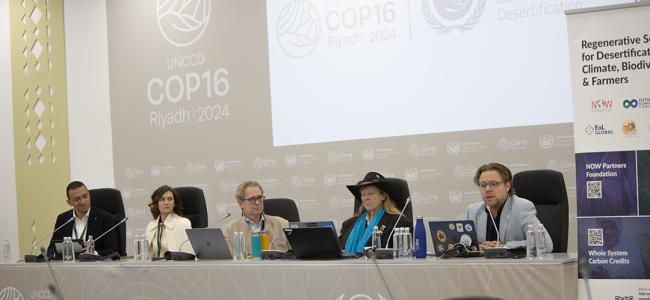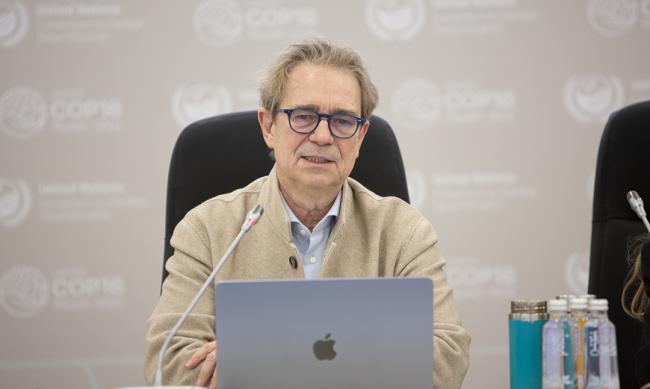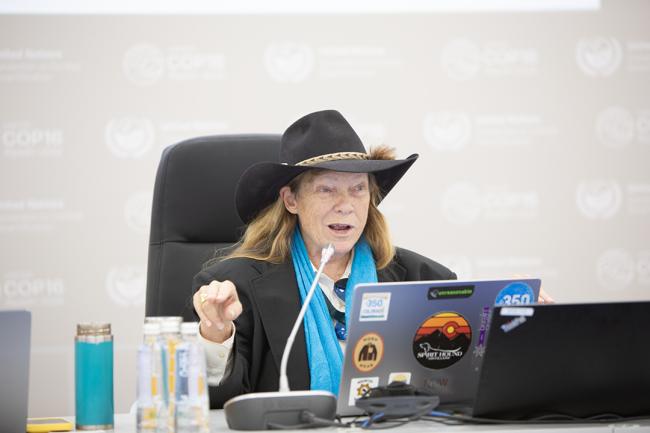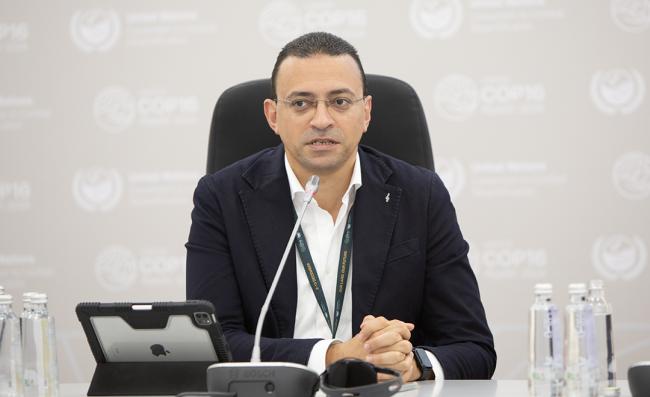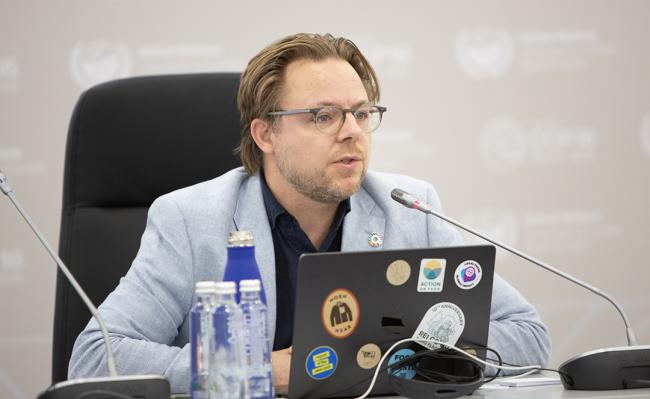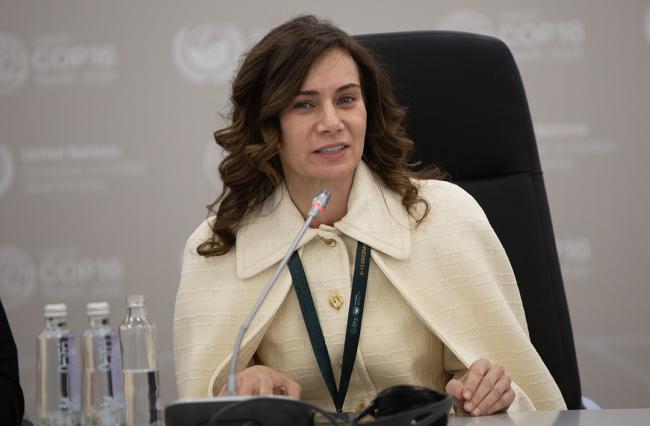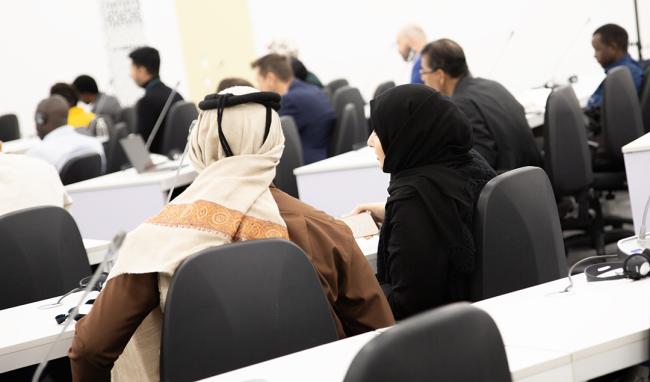About
Contrary to common perceptions, regenerative agriculture isn’t less profitable than chemical-based farming. Besides increasing smallholder incomes and agricultural yields, regenerative practices can reward farmers for promoting soil carbon sequestration through the sale of carbon credits.
Regenerative agriculture combines traditional and new practices to create benefits for people and nature, resulting in increased yields, more nutritious produce, higher household incomes, and increased biodiversity. Speakers and participants at this event cited examples from India and Egypt to illustrate the benefits to farmers: first, from applying regenerative principles; and, second, from the sale of carbon credits from soil carbon sequestration.
Walter Link, Co-Founder, Future Economy Forum, introduced the event and speakers. He explained that regenerative agriculture benefits from both traditional and new practices; for example, smallholder farmers in India and Zambia have learned how to harvest water from the air, which has allowed them to grow crops in the dry season. He emphasized that desertification occurs not only over large land areas, but also on parts of farmland that are no longer productive, because of the over-use of chemicals.
Hunter Lovins, President and Founder, Natural Capitalism Solutions, explained the importance of mycorrhizal fungi in soil health and outlined the principles for its increase, including: ensuring ground cover; keeping living roots in the soil; ensuring minimal disturbance to the soil; and maintaining the diversity of crops, trees, and animals—all of which dramatically increase carbon sequestration in the soil. Describing herself as a rancher, she stressed that peer-reviewed scientific research shows livestock grazing increases mycorrhizal fungi and promotes soil carbon—a process that is “driving climate change back at a profit”—whereas chemical-based agriculture poisons the fungi and leads to a decline in the nutritional value of crops. Citing the example of banana growers practicing regenerative agriculture in Andhra Pradesh, India, she highlighted multiple benefits, including a 50 to 100% increase in yield, while groundcover crops provide food and additional income for farmers. She emphasized the importance of smallholder farmers for the global economy, nutrition, and food security, stating that regenerative approaches can compete with the most sophisticated commercial farming methods.
Ahmed El Shazly, Heliopolis University, Egypt, represented the work of SEKEM, a 47-year old sustainable development initiative in Egypt that promotes organic agriculture, education, healthcare, and cultural initiatives. He explained that carbon credits are used to provide farmers with incentives to maintain ecosystem services. He noted that, thanks to SEKEM’s advocacy, Egypt was able to announce the first voluntary carbon market platform in Africa at the 27th session of the Conference of the Parties to the UN Framework Convention on Climate Change (UNFCCC COP 27). He added that SEKEM also advocated for the Economy of Love (EoL) certification standard for sustainable and ethical products. The EoL, he explained, is now used as a validation tool to verify carbon credits—the first example of an African regional standard.
Merijn Dols, Managing Partner, NOW Partners Foundation, said a significant obstacle to systemic change is the tendency to think of the world as arbitrary sub-systems, for example, in terms of food, beauty and personal care, apparel, and pharmaceutical industries. He singled out Brazil’s Natura as an example of a company that can be described, on the one hand, as one of the world’s largest beauty groups and equally, on the other hand, as an important rainforest conservation agency in Brazil.
Laura Santucci, Co-Founder, Future Economy Forum, discussed the importance of generating both political and public will to realize change. She added that agility in government is critical, citing the example of Andra Pradesh, India, where the state government decided to phase out the use of fertilizers. This, in turn, generated savings at the national level because it absolved the central government of the obligation to pay out fertilizer subsidies, she added. Santucci noted that, as a result, the national government decided to create a policy framework that directed those savings back to the state level, so that Andra Pradesh can continue to advance its agricultural transition.
During the question-and-answer session, a representative of the World Benchmarking Alliance asked how to find a balance between empowering small-scale producers and countering the influence of big agricultural companies. In response, Dols welcomed the work of the Alliance in putting pressure on the leadership of big companies, thereby allowing changemakers within companies to gain traction.
Link, responding to question from a representative of the Restore Africa initiative on how to seek funding for regenerative agriculture in southern Africa, cited the example of a USD 3 million bond issue his organization developed with partners in Brazil to raise money for regenerative agriculture.
To conclude, Santucci reminded the audience that change happens, not only because of data and evidence, but because science and storytelling together can win over the hearts and minds of policymakers.
Organizers: Natural Capitalism Solutions, NOW Partners Foundation, Future Economy Forum, Economy of Love Global, Sekem
Contact: aya@now.partners
Website: https://futureeconomy.forum and www.now.partners
To receive free coverage of global environmental events delivered to your inbox, subscribe to the ENB Update newsletter.
All ENB photos are free to use with attribution. For UNCCD COP 15 Side Events, please use: Photo by IISD/ENB | Angeles Estrada Vigil

